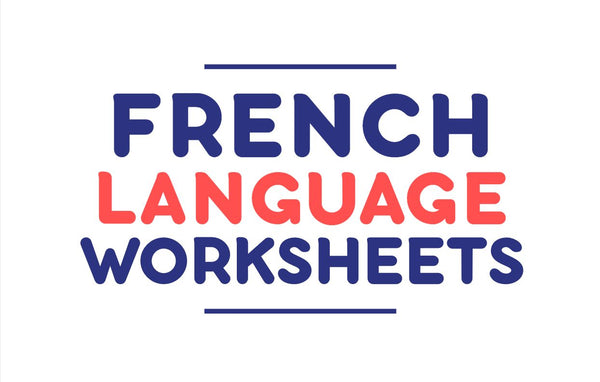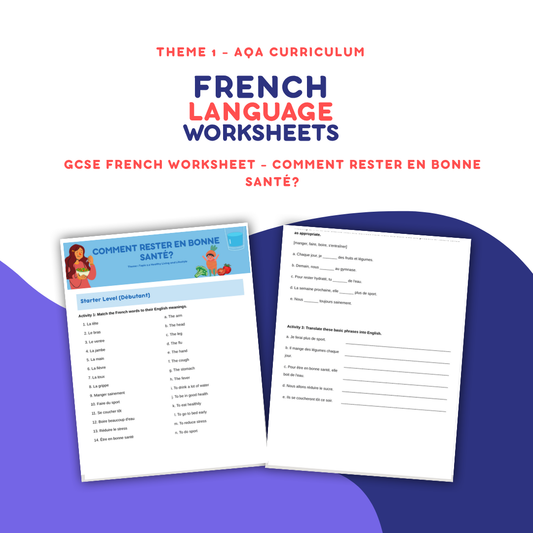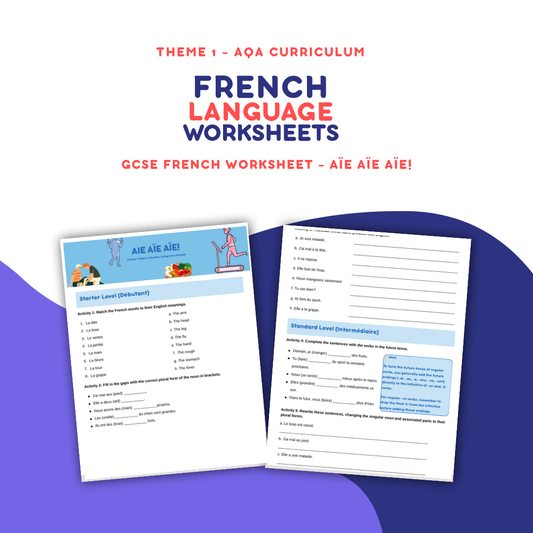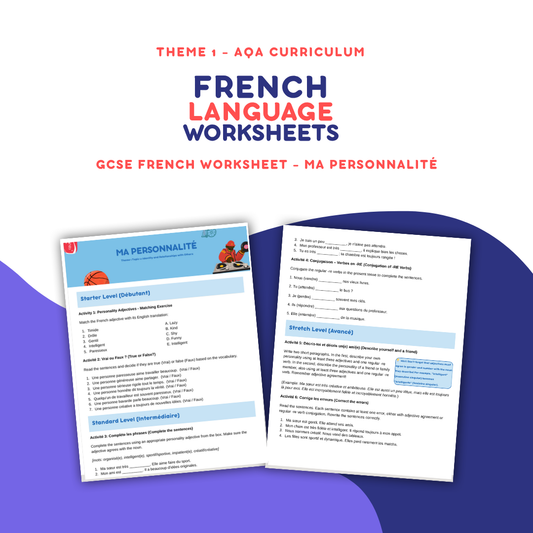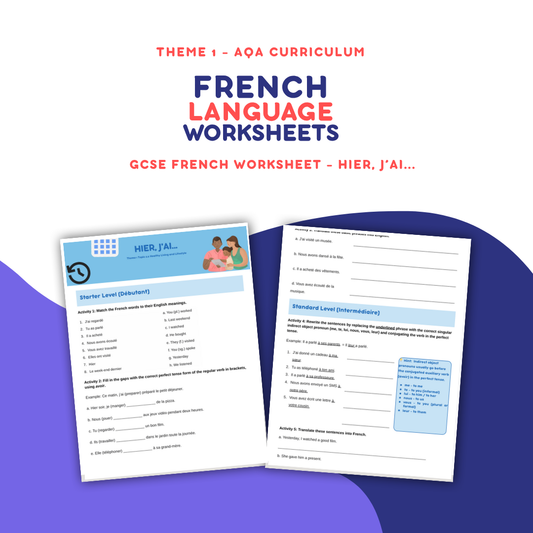A Teacher's Complete Guide to AQA French (GCSE)
Whether you’re a student gearing up for exams, a parent trying to support revision, or a teacher navigating the latest AQA specification, this guide will walk you through everything you need to know about AQA French – from what it is, to how it works, to the best ways to prepare.
What is AQA?
AQA (Assessment and Qualifications Alliance) is one of the UK’s biggest exam boards. They set the GCSEs and A-levels that thousands of schools use. When people say “I’m doing AQA French”, it simply means their school has chosen AQA as the exam board for French rather than another board like Edexcel or OCR.
What is AQA French?
AQA French is the official GCSE French course and exam for Key Stage 4 (Years 10 and 11). It’s designed to test:
- Listening – understanding spoken French in everyday situations
- Speaking – holding conversations, role plays, and photo cards
- Reading – interpreting written French, from signs to longer passages
- Writing – producing French texts, from emails to essays
The GCSE is graded from 9 to 1 (9 being the highest), and most students take exams at the end of Year 11.
Who is AQA French for?
- Students – If you’re in Year 10 or 11, this is your French GCSE.
- Parents – It helps to know what your child is expected to do, and how you can support them.
- Teachers – You’ll need to stay on top of the latest AQA specification, prepare lessons, and get students exam-ready.
What Students Need to Know
Topics Covered: AQA French is split into three main themes:
- Theme 1: People & Lifestyle
- Theme 2: Popular Culture
- Theme 3: Communication & the World Around Us
Exam Structure:
- Paper 1: Listening (25%)
- Paper 2: Speaking (25%)
- Paper 3: Reading (25%)
- Paper 4: Writing (25%)
Assessment Style:
- Foundation Tier – The exams are a little easier and focus on the basics. You can achieve up to grade 5, which is a strong pass.
- Higher Tier – The exams are more challenging, but you can score up to grade 9, the very top grade.
- Both tiers overlap: grades 4 and 5 are available on both. Foundation is more supportive if you’re building confidence, while Higher is for those aiming higher – but it can be harder to pass.
Key Skills: Vocabulary, grammar, pronunciation, and cultural awareness.
What Parents Need to Know
- Support Matters – Encourage regular practice, especially with vocabulary and past papers.
- Revision Strategy – Short, frequent revision sessions are far more effective than last-minute cramming.
- Speaking Exam Anxiety – Many students worry about this part. Practice at home helps (e.g., casual French chats, role-plays - you can use tools like ChatGPT to simulate this, using the voice chat feature)
- Resources – Direct them to worksheets, online audio, and flashcards.
What Teachers Need to Know
The 2016 specification was fully updated in 2024 with:
- More emphasis on authentic language use
- Updated themes with a stronger focus on popular culture.
Teaching tips:
- Integrate listening and speaking practice regularly
- Encourage independence with vocabulary apps and worksheets
Exam Revision Tips for AQA French
- Daily Vocabulary Boost – Get familiar with the key vocabulary list and use sites such as 'LanguageNut'
- Speaking Prep – Record yourself answering questions. Again, using the speaking tool on ChatGPT can be good for this. Ask GPT to give you questions, and then feedback based on your answer.
- Listen, Listen, Listen – French music, podcasts, and films help tune your ear.
- Use Worksheets – Structured practice is key (you’ll find loads on our website).
Ages & Key Stage 4 Relevance
- AQA French GCSE is taken in Key Stage 4, by students in Years 10 and 11 (ages 14–16).
- It builds on KS3 French and prepares students for A-levels (KS5), work, or simply for real-world travel and communication.
GCSE French – Why It Matters
- Life Skills – Communication in another language boosts confidence.
- Education Pathways – A good grade opens doors to A-level French or international study.
- Career Value – Employers love language skills – especially in business, teaching, tourism, and diplomacy.
I've written a full blog on why learning French matters in England - if you'd like to read more!
FAQs About AQA French
Q: Is AQA French hard?
A: Like any GCSE, it depends on practice. Regular vocabulary work and listening practice make it manageable.
Q: Do you have to do a speaking exam?
A: Yes, and it counts for 25% of the grade. But it’s structured and predictable – lots of practice will help.
Q: Can students choose Foundation or Higher tier?
A: Yes, schools can take it into consideration, but will ultimately decide based on ability and progress.
Q: What’s new in the 2024 update?
A: More focus on popular culture, clearer pronunciation, and updated themes reflecting real-life use of French.
Q: How can I get extra practice?
A: Worksheets are a brilliant start – they provide structure and repetition without overwhelming students. If you need extra support, check out our French tutoring services.
Key Resources for AQA French
- AQA official website – Specification and past papers
- Quizlet – Vocabulary flashcards
- french-language-worksheets.com – Ready-to-use worksheets for grammar, vocabulary, reading, and exam prep
Browse all worksheets here: French Language Worksheets – All Products
